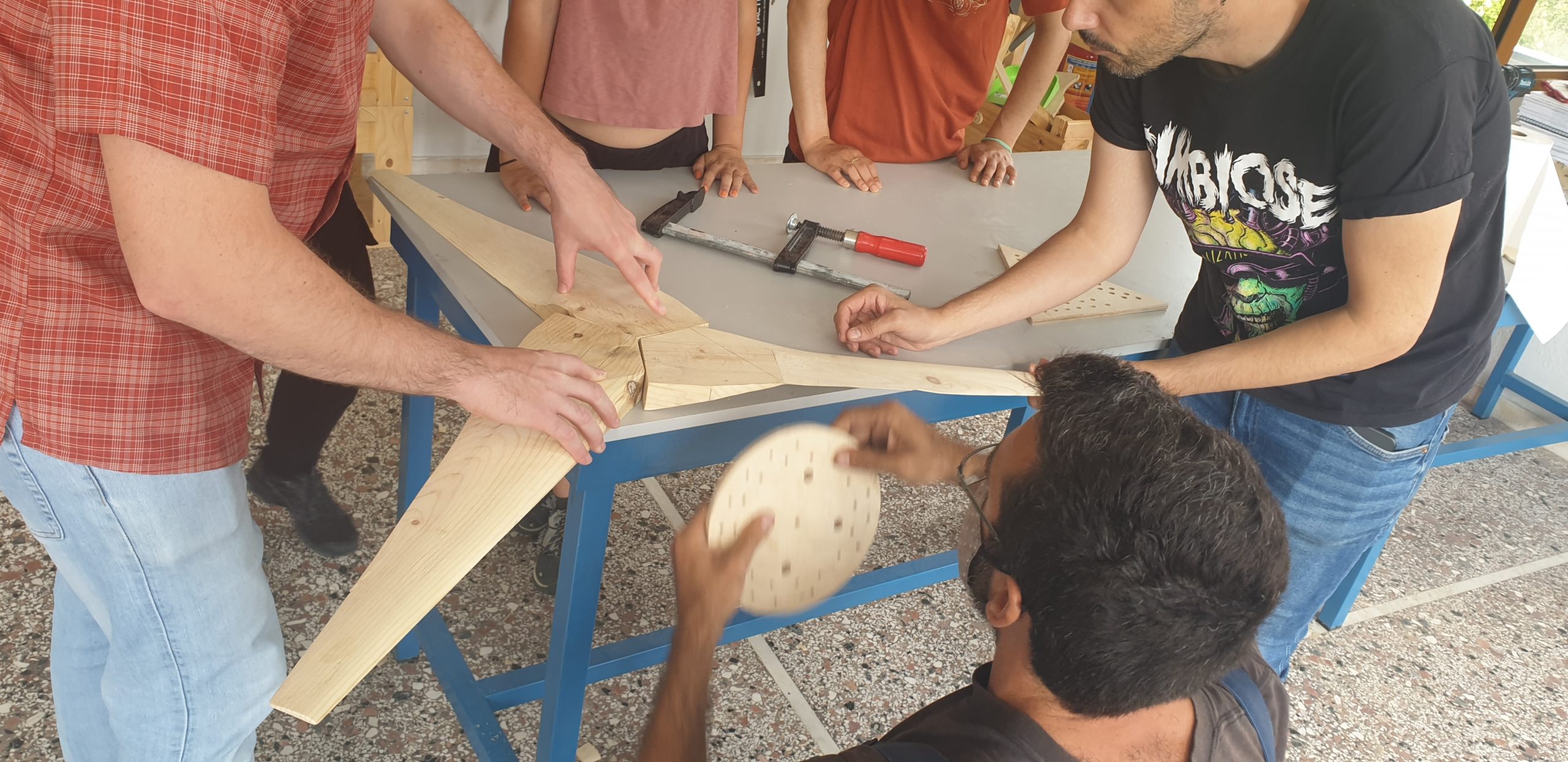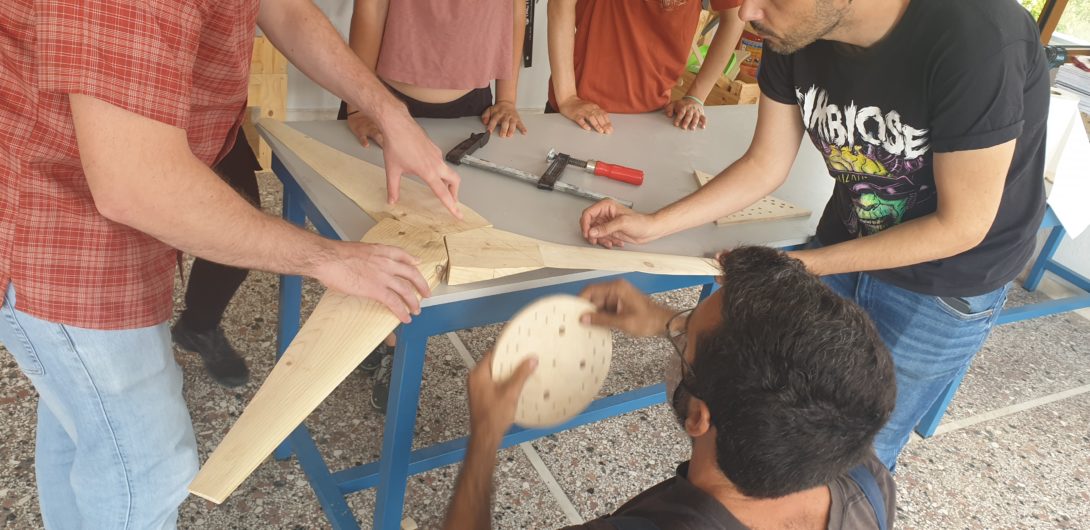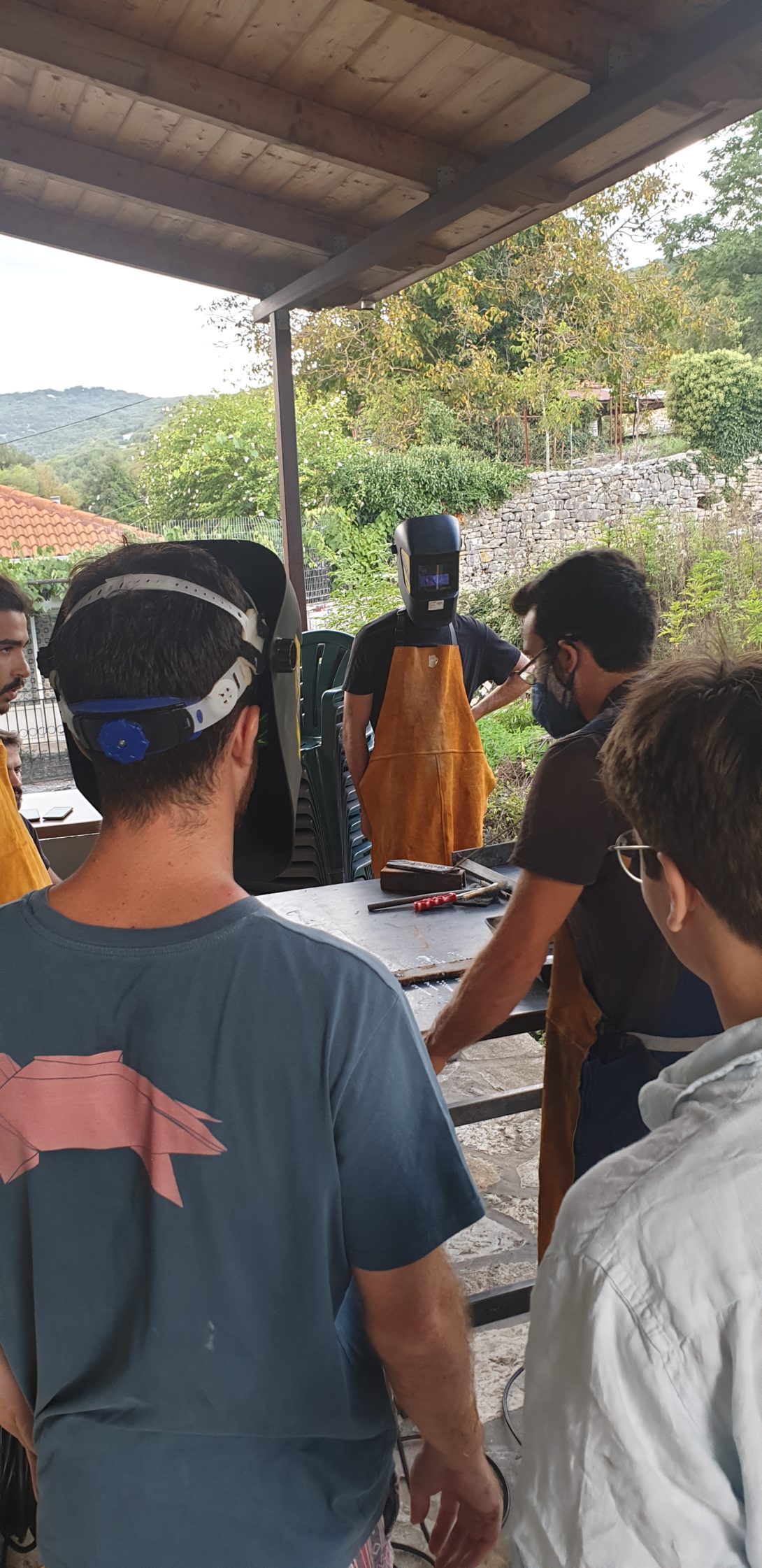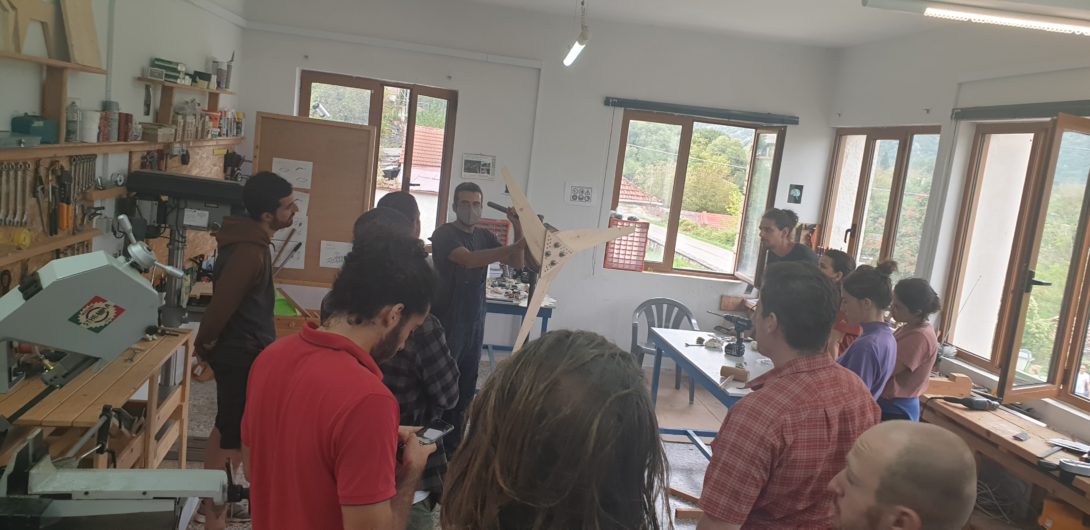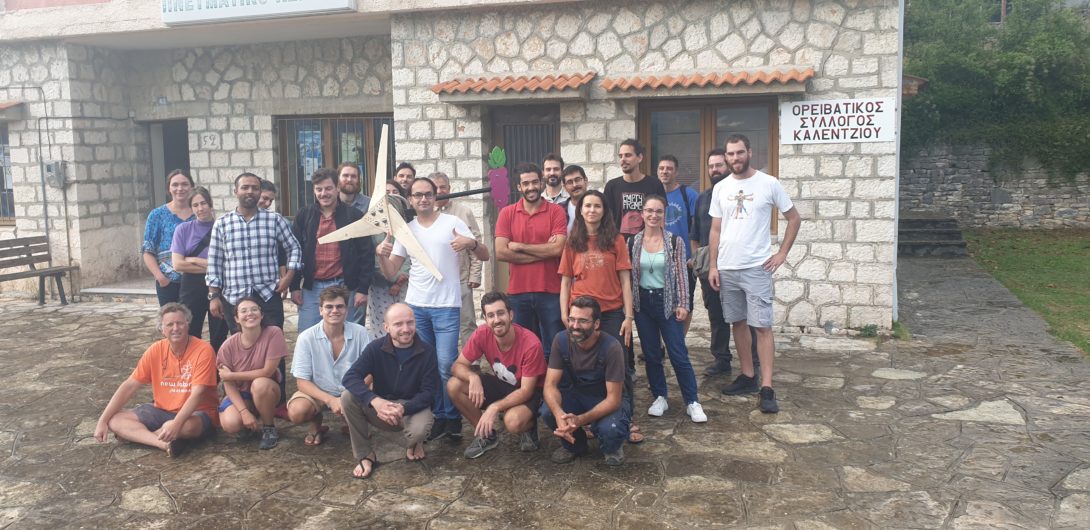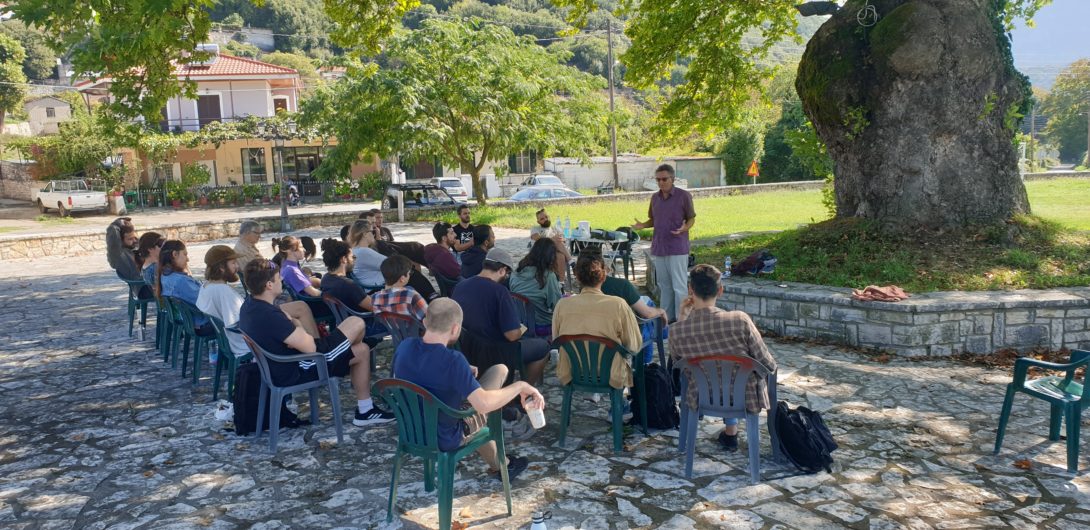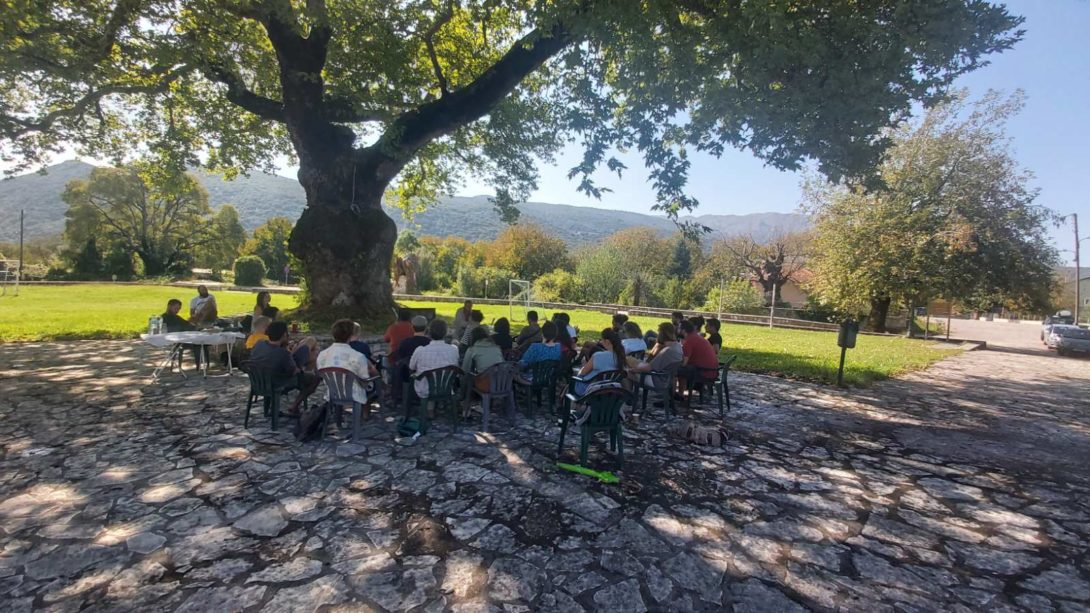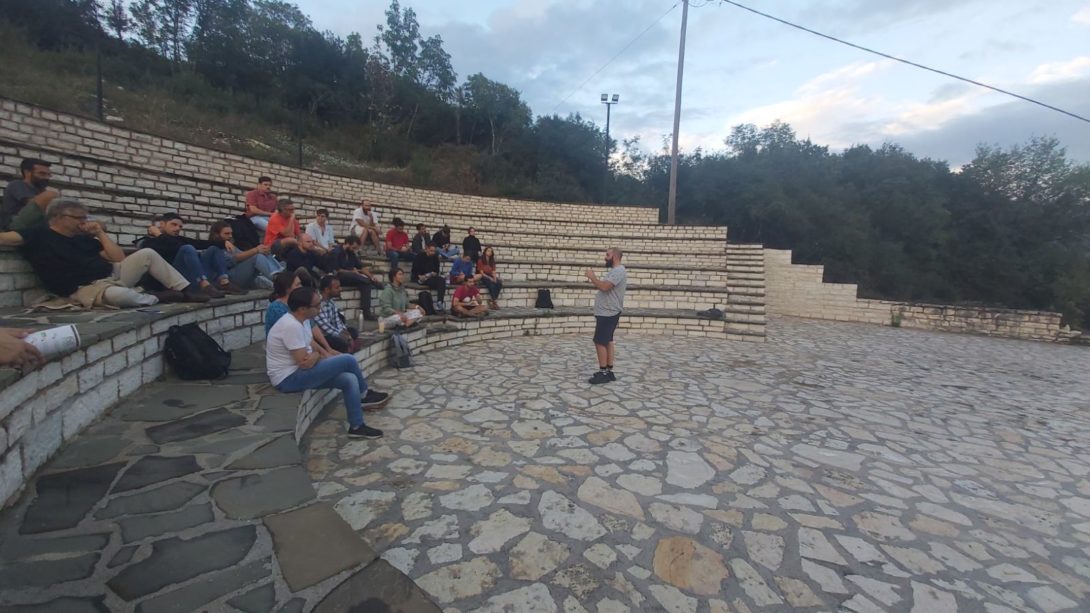Useful information
- Date
- Tuesday 30th August 2022 — Friday 2nd September 2022
- Opening hours
- 9:00am — 9:00pm
- Venue
- Tzoumakers
- Price
- Free of charge
About the event
The last decade has marked a significant increase in the global conscience of the need for radical changes in our “way of life.” The issue of rethinking our energy systems –traditionally centralised and fossil-fuel-based to support mass consumption– has been prominent and contentious. Due to its complexity, proposed solutions often address the symptoms of the current socioeconomic configuration rather than tackling its core assumptions. Thus, the need to transition to an energy system that not only produces energy in an environmentally sustainable way, but also socially becomes apparent.
This summer school explored a radically novel energy system that could reconceptualise the material and digital infrastructure and the political economy that permeates it. It discussed solutions that challenge the foundation of modern organisational and technological systems for truly impactful energy research. It explored the potential of energy as a commons regarding social and environmental sustainability. That is, energy as a communally produced and managed resource satisfying users’ needs rather than a commodity to maximise profits by producing and selling as much as possible. In addition, it provided the foundations for novel research within science and technology studies, political ecology and economy, organisation studies, and engineering.
Facilitators and students co-created a learning environment to collaboratively investigate alternative technological and organisational trajectories under a commons-based political economy umbrella. The summer school included a theoretical and hands-on exploration of alternative technological trajectories to the energy sustainability conundrum. The theoretical exploration was facilitated by the P2P Lab, while the hands-on exploration was facilitated by the School of the Earth “Nea Guinea” and included the collaborative building of parts of a small-scale wind turbine.
The summer school took place in Kalentzi, a village in the Municipality of North Tzoumerka, Ioannina, Greece, from the 30th of August until the 2nd of September 2022. It was co-organised by the P2P Lab of Tallinn University of Technology, and by the Interdepartmental Graduate Program “Science, Technology, Society – Science and Technology Studies” of the National and Kapodistrian University of Athens. Also, it was financially supported by the European Research Council under the European Union’s Horizon 2020 research and innovation programme (grant agreement No 802512).
